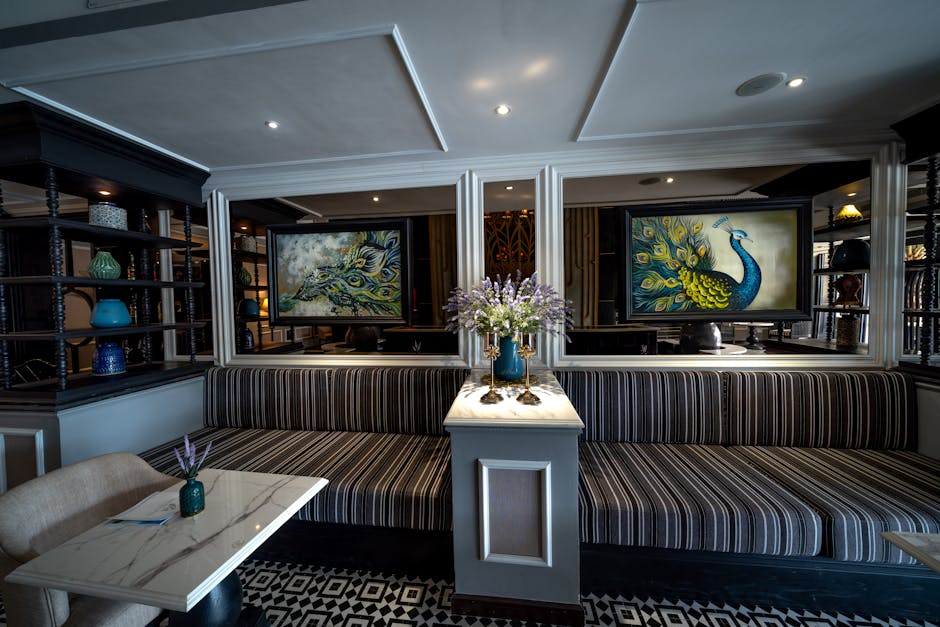The Rise of Boutique Hotels: A Unique and Personalized Stay
Travelers today are seeking more than just a place to rest their heads. The hospitality industry has witnessed a distinct shift in preferences, with guests yearning for accommodations that reflect individuality, charm, and authenticity. Boutique hotels have stepped into this space, offering uniquely designed environments and personalized experiences that stand out from traditional chain hotels. Blending local culture, attention to detail, and tailored services, allows boutique hotels cater to those who value uniqueness and connection over standardized amenities.

Why Boutique Hotels
Boutique hotels are often characterized by their smaller size, bespoke interiors, and focus on creating an intimate atmosphere. Unlike large hotel chains that prioritize uniformity across their locations, boutique hotels emphasize individuality and creativity. They are commonly situated in repurposed historic buildings, urban hubs, or scenic countryside locations, each offering its own story through design and ambiance.
One of the defining features of boutique hotels is their commitment to reflecting the local culture and heritage of their location. From handpicked artwork by local artists to regionally inspired menus in their dining areas, these establishments aim to create a deep sense of place. This not only enhances the guest experience but also supports local communities by incorporating regional craftsmanship and suppliers. Boutique hotels comprise a growing segment within the global hospitality market. Their popularity has increased significantly among millennials and Gen Z travelers who prioritize authentic experiences over conventional luxury. This aligns with the broader trend of travelers seeking out accommodations that align with their personal values and lifestyle preferences.
What Sets Boutique Hotels Apart?
The appeal of boutique hotels lies in their ability to offer something distinctively different. From bespoke services to unique architectural designs, they often go above and beyond in delivering memorable stays for guests. Below are some standout characteristics:
- Personalized Guest Experiences: With fewer rooms than larger hotels, boutique properties can provide tailored services such as customized welcome amenities or individually curated itineraries.
- Design-Driven Spaces: Interiors are often crafted by renowned designers or architects, combining aesthetics with functionality to create an inviting environment.
- Eco-Conscious Initiatives: Many boutique hotels adopt sustainable practices, such as using locally sourced materials or implementing eco-friendly energy solutions.
An example of this attention to detail can be seen in the Soho House group of boutique hotels. Each location reflects its surrounding neighborhood while maintaining a cohesive brand identity that emphasizes luxury through simplicity. Similarly, smaller independent properties often collaborate with regional talent to create spaces that mirror the community's essence while offering modern comforts.
The Impact on Local Communities
Boutique hotels do more than cater to travelers; they play a significant role in supporting local economies and fostering cultural preservation. By sourcing goods from nearby artisans or featuring locally inspired cuisine on their menus, these establishments contribute directly to the community's financial well-being.
A study published in the Journal of Sustainable Tourism highlighted how boutique accommodations encourage sustainable tourism practices by promoting authentic experiences rooted in local traditions. Travelers staying at such properties are more likely to explore beyond mainstream attractions, spending time (and money) in areas that benefit from increased exposure.
Additionally, boutique hotels often provide employment opportunities for residents while championing cultural education through workshops or events held on-site. This collaborative approach strengthens the bond between tourists and locals while ensuring long-term benefits for both parties.
Comparing Boutique Hotels with Traditional Accommodations
Boutique hotels differ significantly from their mainstream counterparts regarding size, services offered, and overall guest experience. To better understand these differences, consider the comparison below:
| Feature | Boutique Hotels | Traditional Chain Hotels |
|---|---|---|
| Size | Typically under 100 rooms | Often hundreds of rooms per property |
| Design | Unique interiors reflecting local culture | Standardized design across locations |
| Service Style | Highly personalized service | Standardized service protocols |
| Cultural Integration | Deeply connected to local communities | Limited emphasis on local engagement |
| Sustainability Efforts | Pioneers in eco-friendly initiatives | Varies widely across brands |
The bespoke approach of boutique hotels caters to travelers looking for meaningful connections and experiences rather than just convenience or affordability. For many guests, this distinction makes all the difference when choosing where to stay.
The Boutique Advantage
The rising demand for boutique accommodations signals a clear preference among travelers for spaces that feel personal and thoughtfully curated. Unlike traditional options that may focus heavily on luxury through grandeur, boutique properties redefine indulgence through intimacy and character. This shift has prompted even established hotel chains to launch sub-brands targeting this niche market. For instance, Marriott’s Autograph Collection and Hilton’s Curio Collection include properties designed with a boutique-like aesthetic but backed by the resources of global hospitality giants.
The future success of boutique hotels may depend on their ability to maintain this balance between uniqueness and scalability while staying true to their core values of authenticity and personalized service. Integrating technology without losing the human touch will be essential as guest expectations continue evolving in a digital-first environment. Boutique hotels present a compelling option for those seeking accommodation that transcends mere functionality. They embody stories waiting to be discovered, stories shaped by thoughtful design choices, meaningful interactions with staff and locals alike, and moments of genuine connection found far from cookie-cutter establishments.
The next time you plan your travels, consider exploring what these unique spaces offer. Whether it’s an art-filled room in a bustling city center or a serene retreat nestled amidst nature's beauty, your stay at a boutique hotel might just redefine how you view hospitality altogether.
This article was generated by AI